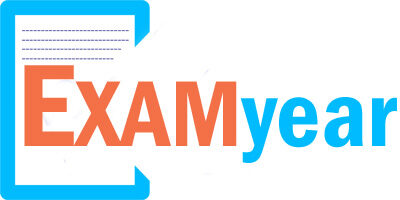Home Science Model Question Papers
Home Science Model Question Paper available. Many of the candidates had requested for the Home Science Model Question Papers. For such candidates, we have provided the Home Science Model Question Papers with Answer pdf to prepare better for the exam and have a career on this board.

Furthermore, the contenders can also find and download the Home Science Model Question Papers from the link given below in the post. Start your preparations by solving the Home Science Model Question Papers so that you can do well on your exams.
Model Question Papers on Home Science
1. Meal planning is important for _
(a) Utilizing time
(b) Budget planning
(c) Saving energy
(d) Nutritional adequacy of diet
2. Megaloblastic anaemia is caused due to deficiency of
(a) Iron
(b) Folic acid
(c) Proteins
(d) Cynocobalamine
3. Which of the following is a major food group?
(a) Fruits and vegetables
(b) Protective foods
(c) Condiments and spices
(d) Vitamins and minerals
4. Daily nutritional requirements of iron for a pregnant mother is:
(a) 20 m.gms
(b) 30 m.gms
(c) 40 mgms
(d) 46 mgms
5. Body building serves as
(a) Social function
(b) Psychological function
(c) Physiological function
(d) Economic function
6. Macrocytic anaemia is caused by a deficiency of
(a) Niacin
(b) Vitamin B12
(c) Vitamin A
(d) Iron
7. Green leafy vegetables are included in the diet as
(a) Body building foods
(b) Energy yielding foods
(c) Protective foods
(d) Foods supplying proteins
8. Kwashiorkor is associated with
(a) Insanitary condition
(b) Total under-nutrition
(c) Protein deficiency
(d) Protein energy malnutrition
9. Cobalt is a constituent of
(a) Folic acid
(b) B12
(c) Niacin
(d) Carotene
10. Xerophthalmia is the deficiency of
(a) Vitamin K
(b) Vitamin E
(c) Vitamin D
(d) Vitamin A
11. Vitamin E is also known as
(a) Choleacalciferol
(b) Tocopherol
(c) Insitol
(d) Retinol
12. Sugar and salt are effective preservative because they
(a) Withdraw water from food
(b) Prevent oxygen from reaching the food
(c) Are toxic to bacteria
(d) React with water forming Co2
13. The method of cooking which employs radiant heat is
(a) Stewing
(b) Braising
(c) Boiling
(d) Broiling
14. Linoleic acid is
(a) Triglycerides
(b) Unsaturated fatty acids
(c) Saturated fatty acids
(d) Essential fatty acids
15. The red colour present in tomato is due to
(a) Lycopenes
(b) Anthocyanins
(c) Anthoxanthins
(d) Carotenoid
16. The method of heating fruits and vegetables for sometime in boiling water is called
(a) Canning
(b) Blanching
(c) Pasteurisation
(d) germination
17. Diets in diarrhoea
(a) High fibre, semi liquid
(b) Low fat, high protein
(c) High fibre, semi liquid
(d) Low fat, high protein
18. About 2gms of it is excreted in the urine daily
(a) Potassium
(b) Zinc
(c) Iron
(d) Sulphur
19. Following need lots water and fibre to check the problem of constipation
(a) Lactating mother
(b) Old people
(a) Adult women
(b) Children
20. Plant foods which have high green or yellow colouring contain a pigment called
(a) Chlorophyll
(b) Carotene
(c) Litmus
(d) Lycopenes
| Important Question | GK |
| Mock Test | Quiz |
| NIOS | MCQs |
| ICAR JRF | Objective Test |
| NET JRF | Sample Question |
| TGT | Model Papers |
| PGT | Previous Year Question |
| RPSC | CDPO Test |
| UGC NET |
21. The term food means
(a) What nourishes the body
(b) Stimulatemetabolism
(c) Increases the appetite
(d) Development
22. It combines with iron to produce haemoglobin in the body
(a) Zinc
(b) Sodium
(c) Copper
(d) Sulphur
23. Soyabean is prescribed in the diet of diabetic patient because it is
(a) Less vitamin E
(b) High in protein
(c) Low in starch
(d) Good sources of calcium
24. About 2/3rd of perinatal deaths occur among infants with less than
(a) 2500g birth weight
(b) 2000g birth weight
(c) 1500gbirth weight
(d) 1000gbirth weight
25. The major objective of Mid-day Meal Programme is to improve the child’s
(a) Literacy
(b) Health
(c) Standard of living
(d) Economic condition
26. Following serves as a reservoir for food for half an hour to two hours.
(a) The mouth
(b) The stomach
(c) The small intestine
(d) The large intestine
27. Use of baking soda destroys
(a) Vitamin C and Thiamine
(b) Vitamin C and Calcium
(c) Vitamin C and B12
(d) Vitamin C and Protein
28. The ____________ child suffers from loss of fluid and electrolytes.
(a) Marasmic
(b) Displaced child
(c) Oedemic
(d) Overweight
29. Which agency have developed a process to produce iodized oil in Safola Oil?
(a) NIN
(b) FAO
(c) CFTRI
(d) ICDS
30. The social factor that influence maternal morality.
(a) Lack of maternal services
(b) Obstructed labour
(c) Induced abortion
(d) Accidents
31. There is an increased demand __________ for in the second half of pregnancy.
(a) Protein
(b) Iron
(c) Vitamin A
(d) Calcium
32. The loss of nutrients is much less in than in ________ the case of polished rice
(a) Patching
(b) Parboiling
(c) Liming
(d) Puffing
33. Canned and frozen foods are
(a) Refrigerated
(b) Convenience
(c) Perishable
(d) Non-perishable
34. The Special Nutrition Programme covers children between
(a) 0 – 3 years
(b) 0 – 6 years
(c) 2 – 4 years
(d) 2 — 5 years
35. The meal served to school children should be
(a) A substitute to home diet
(b) A supplement to home diet
(c) In small quantity
(d) Attractive


